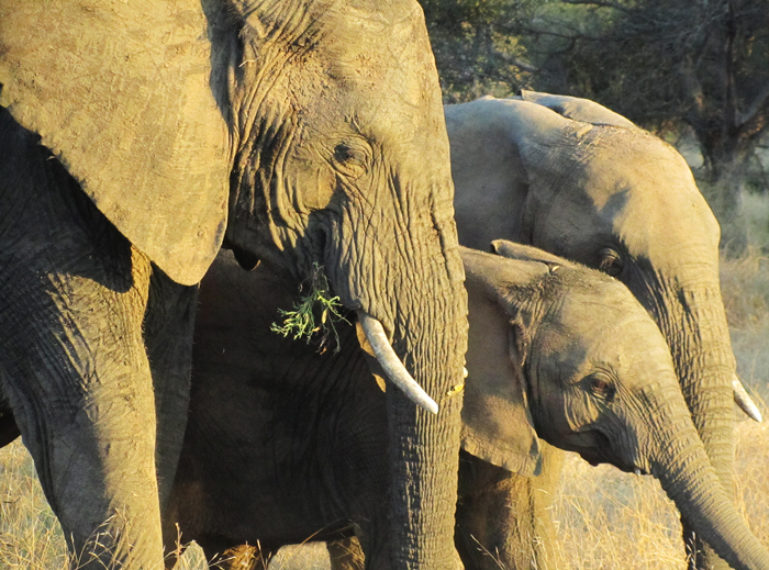
It’s winter here in the Klaserie and the breeding herds of elephants are in abundance. Winter time means that the vegetation is sparse and water sources are scarce. The once lush green thickets have turned into dry, amber colour grasses and wildlife becomes desperate for water. This is the season when our wonderful pachyderms, the gentle giants of Africa, can be seen drinking from lodge swimming pools and waterholes. These soft-hearted herbivores thrive in sloshy mudholes and require clean drinking water to replenish themselves. If it looks clean, they will drink it. Chlorine from a swimming pool? That simply doesn’t phase elephants. At the moment, the elephants in this area are on the move in search of pockets of fresh water.
On our first game drive in the Klaserie we ended up in the midst of a large breeding herd of elephants. Elephants live in a fission-fusion society where large groups come together to socialise and rear their young. When a calf is born the matriarchs of the herd will teach their young the skills necessary to survive in the wild. When we were on our game drive we actually ended up in the midst of a large herd of elephants dispersed on either side of the road. There were a number of young elephants which put us in a precarious situation. Elephants work together as a community and any perceived threat to their young would see the older bulls chasing our vehicle. We witnessed the matriarchs surround the young calves as they moved across the road. A cow has a gestation period of 22 months – I am not surprised she wants to instinctively protect her young ! We did encounter the wrath of a sub-adult male who attempted to mock charge the vehicle. Our ranger Matt had it under control and we switched off the vehicle, kept still and watched him charge off in a huff.
We watched a calf running after its parents. It’s an adorable scenario and quite something to witness. A calf has no control of its trunk and its limbs lack direction. Their ears flap and they attempt to scare the vehicle. Watching an elephant calf play tough? Probably one of the highlights of any safari.
We have seen the herds twice now. The second time proved to be nothing short of dramatic. As the sun set golden light bathed the desperately dry bush. Dust from the moving herd created quite the postcard setting. It’s moments like these that I find difficult to describe. The tranquility of nature and being surrounded by wildlife makes you feel completely connected to the earth.The sound of an elephant’s stomach rumbling mingled with the smells of fragrant vegetation is not something you can can describe with words. My suggestion? Get to nThambo Tree Camp.
When we returned to the lodge we spent some time star gazing and noticed a herd approaching the waterhole right in front of the breakfast table. It seems the elephants are quite a common sighting during the winter months. Or should I call it..the elephant months?
Below are a few images of our time spent connecting with elephants. When you’re observing Africa’s giants look into their eyes – you can see emotion.
5 Facts About Elephants:
- Elephants live between 50 – 70 years old.
- Elephants hug each other by wrapping their trunks affectionately around one another.
- Bulls become aggressive during “musth”, which is their mating season. You will know a bull is in musth when you see secretions from its temporal lobe staining the side of his head.
- Elephants are creatures of habit and follow a daily routine.
- The mud baths? it’s a thermo-regulatory exercise. Putting a layer of dust or mud traps a layer of cool air close to the skin.
Article written by Carolynne Higgins
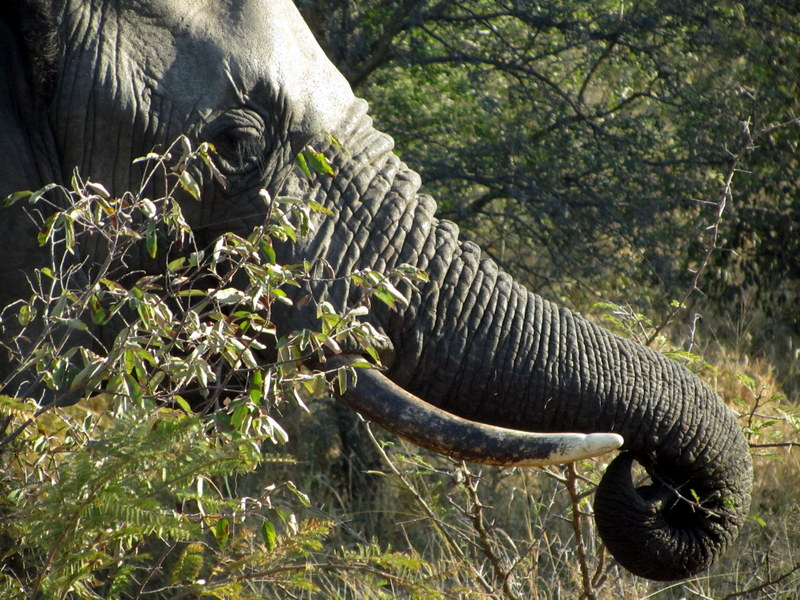
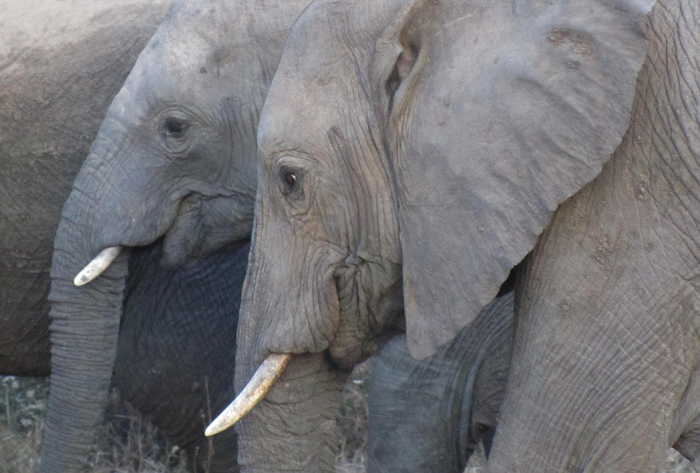
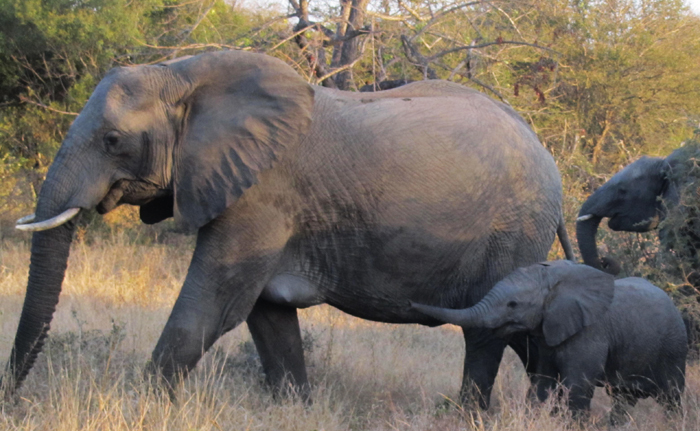

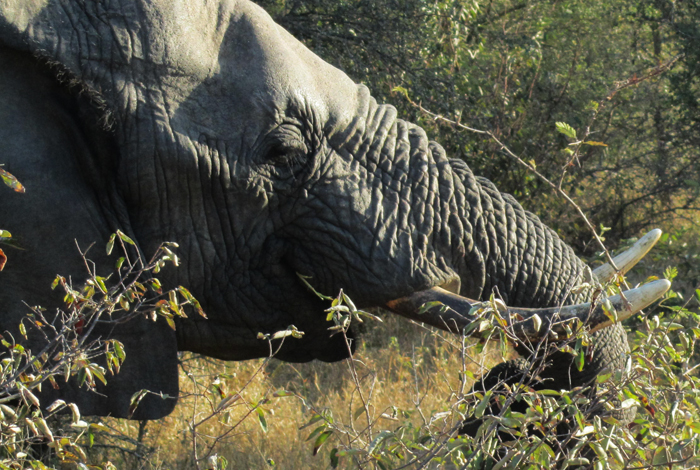
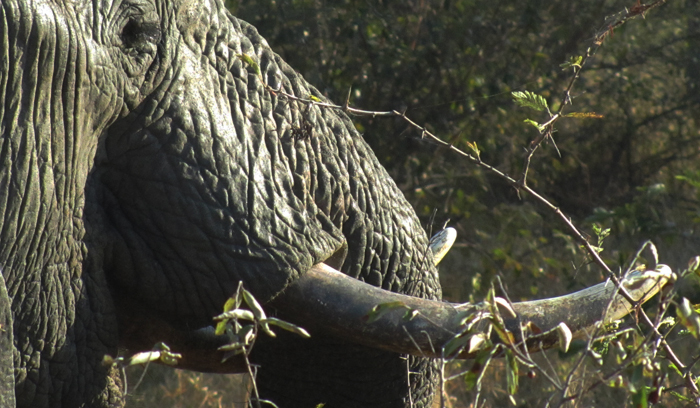
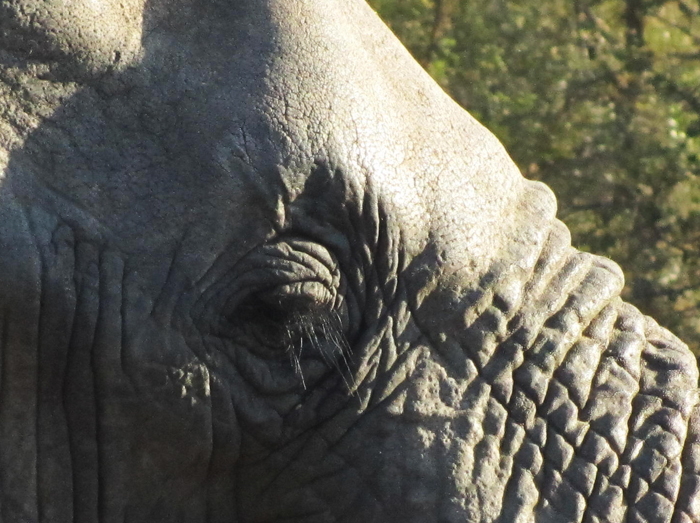
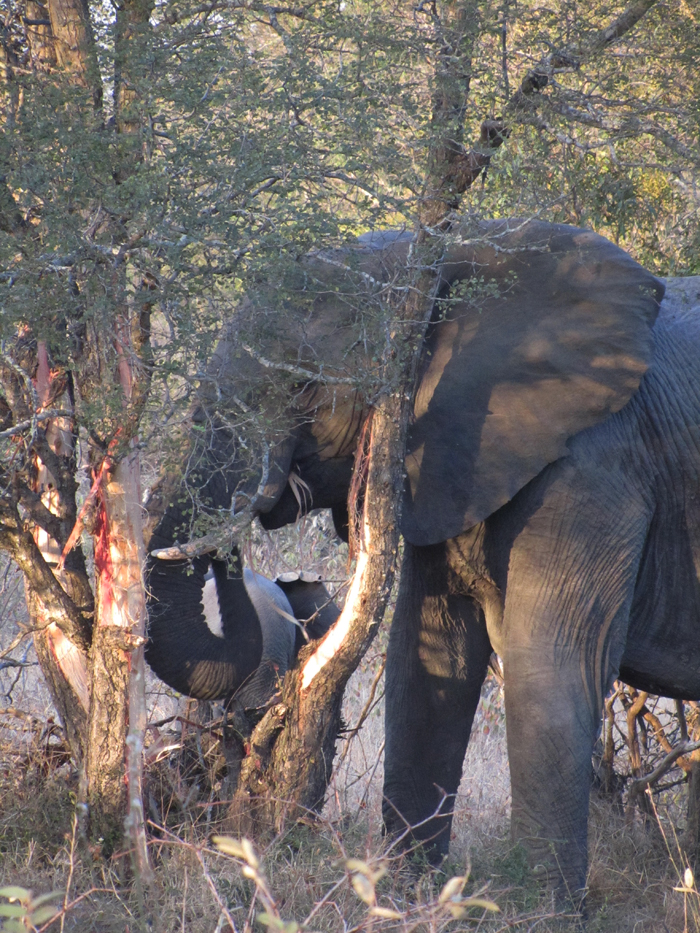
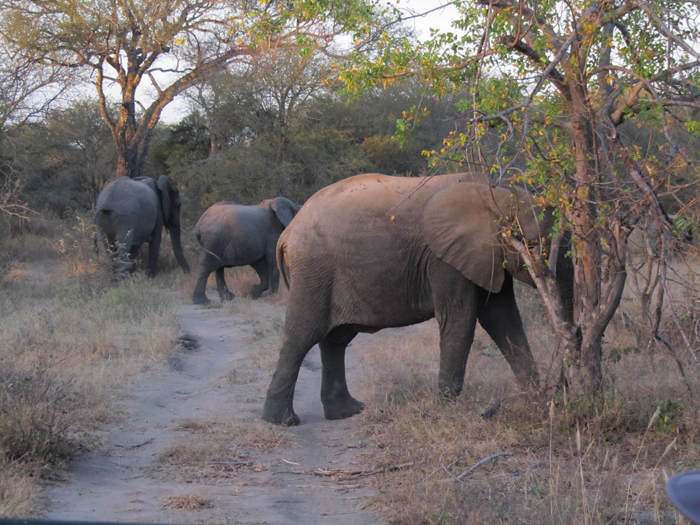
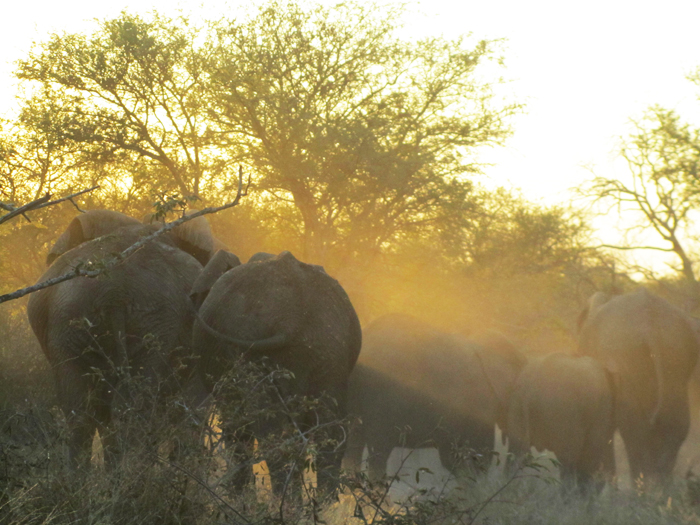
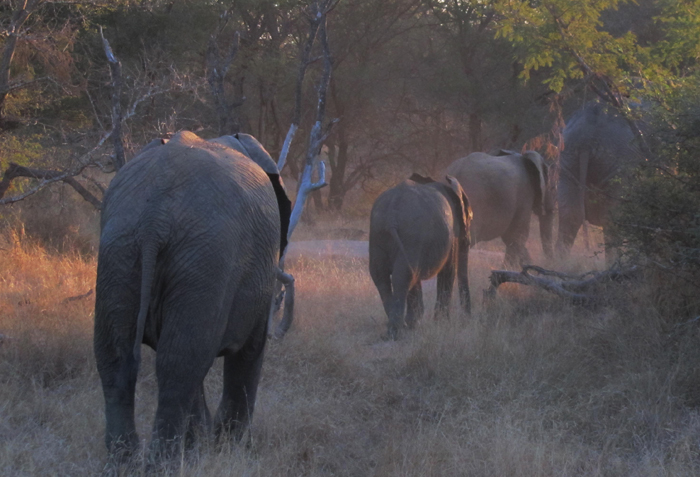
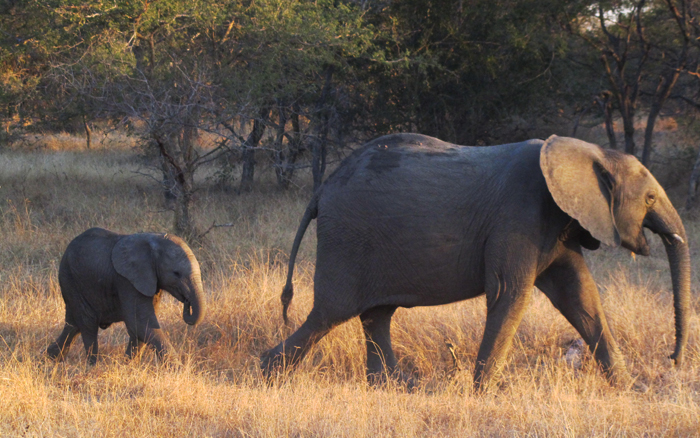
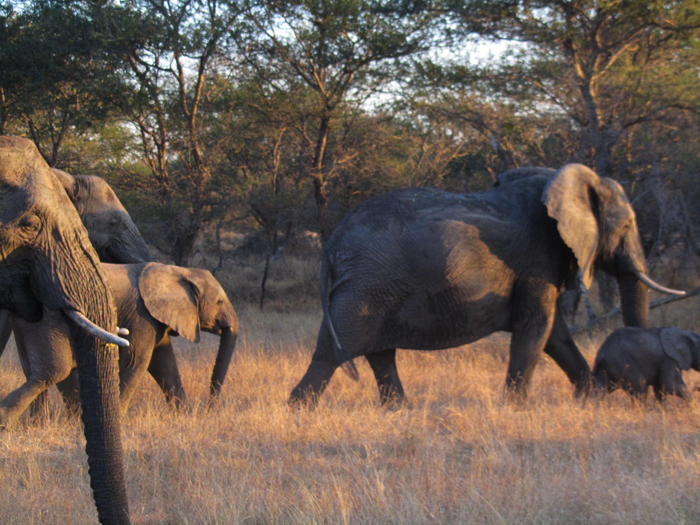
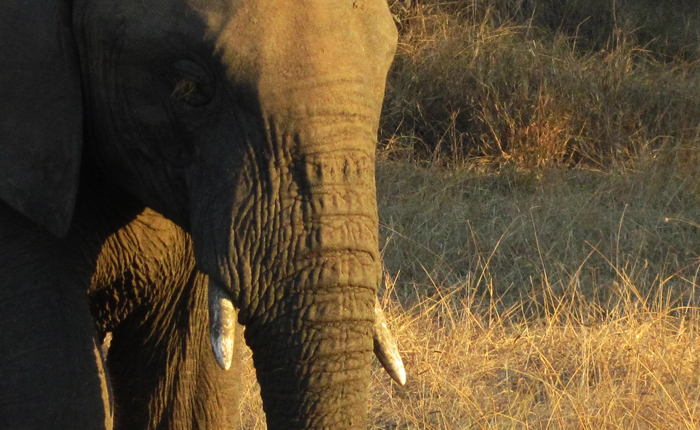
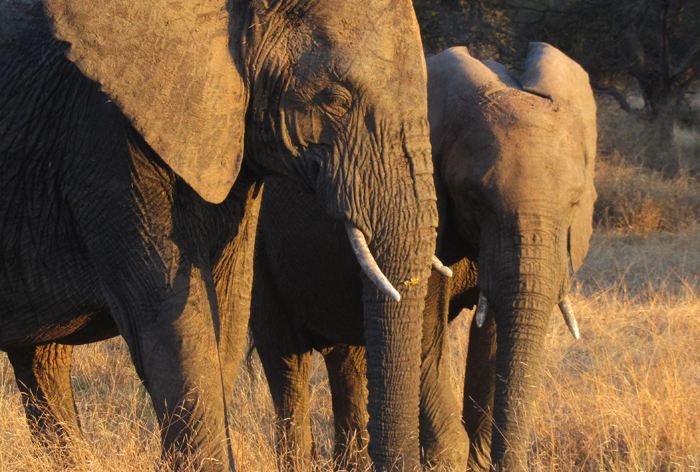
Leave a Comment